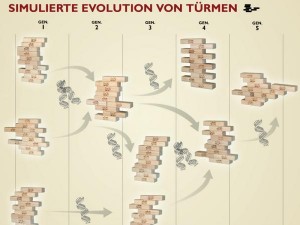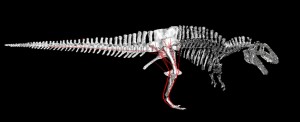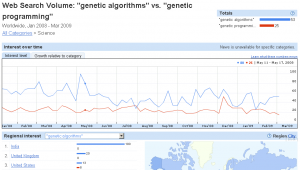From the NewScientist article:
COULD space probes use genetic algorithms as autopilots to help them navigate the complexities of the solar system?
Deep-space missions such as NASA’s veteran z Voyager probes often rely on gravity assists. They use a planet’s gravitational field as a slingshot, which allows them to visit other celestial bodies without using up too much fuel. But programming a probe with its trajectory years ahead of time can be a problem, says Ian Carnelli of the European Space Agency in Noordwijk, the Netherlands.
Missed launch windows, unexpected winds and misbehaving rockets mean that probes hardly ever leave Earth in the planned position or velocity, and radiation pressure from solar flares can perturb the craft’s course in deep space. If the probe is out of position when it starts a gravity-assisted manoeuvre, the slingshot will be inefficient.
In the Journal of Guidance, Control and Dynamics (DOI: 10.2514/1.32633), Carnelli and colleagues Bernd Dachwald and Massimiliano Vasile suggest that a probe could navigate for itself using a genetic algorithm (GA).
(…)
Carnelli likens this to hundreds of virtual pilots flying simulated spacecraft, with the GA disposing of those that waste fuel or steer a slow course, while “breeding” the best ones together, a process akin to natural selection. “After hundreds of generations of the GA you obtain a ‘pilot’ that is an extremely good performer – able to fly the assist trajectory that uses the least propellant while reaching the next target planet faster,” he says. Carnelli has run successful simulations of GA-enabled missions to Mercury via Venus, and Pluto via Jupiter.
(…)
Read the full article.



